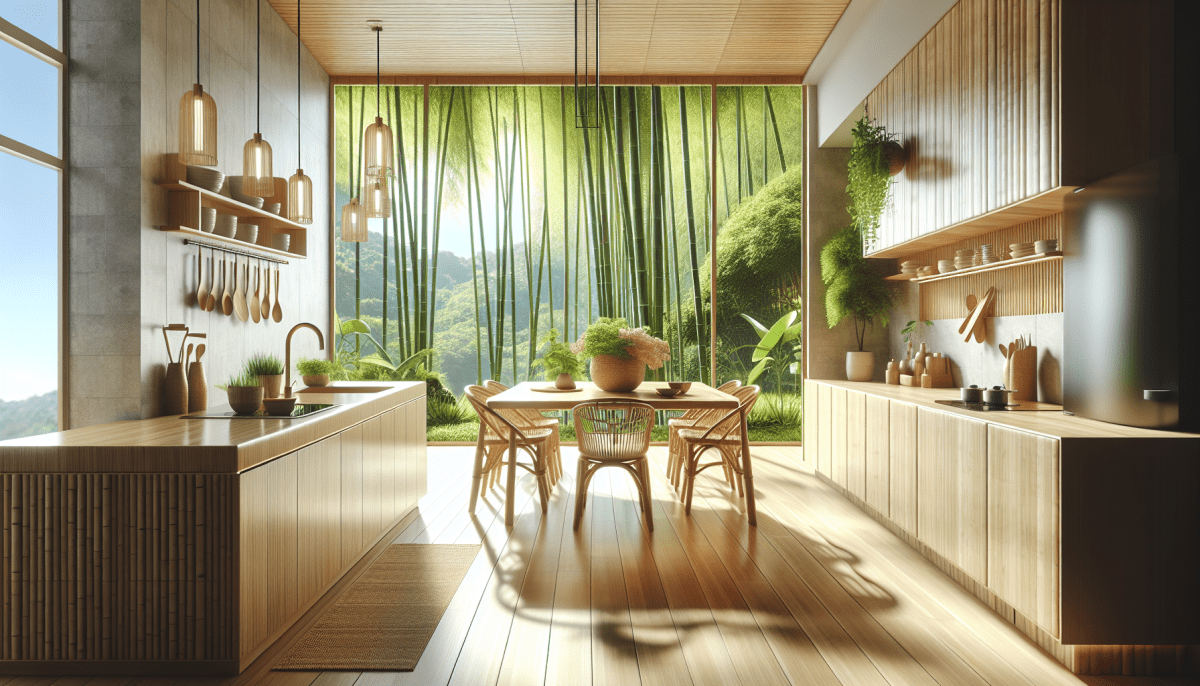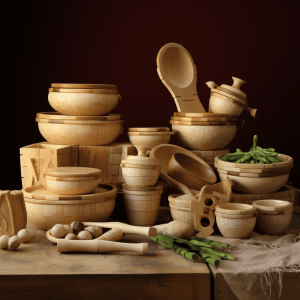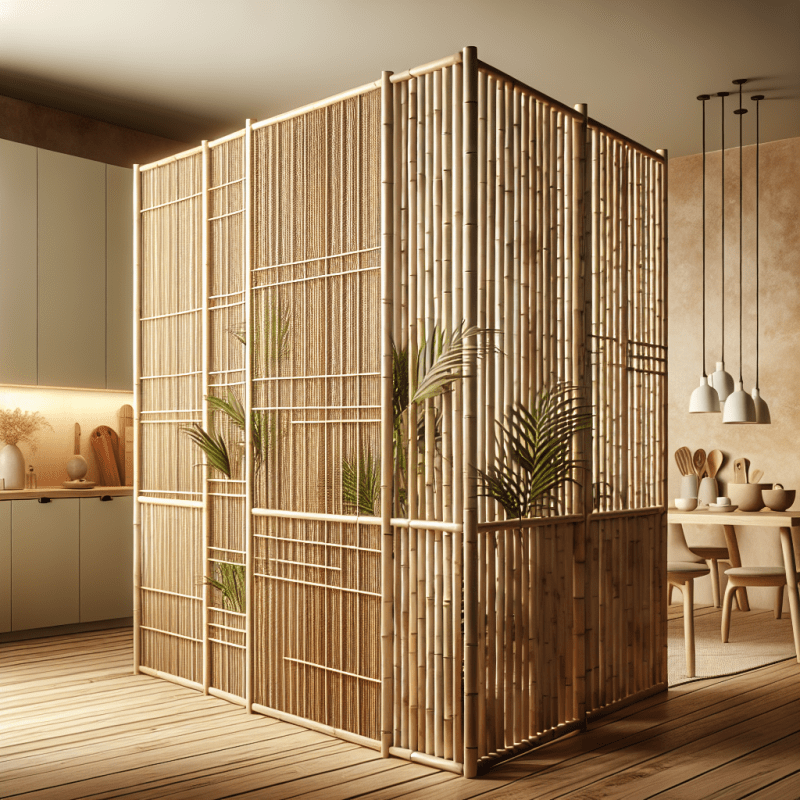Bamboo is a versatile and sustainable material that has been used for centuries in various applications, from construction to furniture. In recent years, it has gained popularity in the kitchen industry as a viable and eco-friendly alternative to traditional materials. Harnessing the power of bamboo in kitchen design not only helps reduce the consumption of limited natural resources but also promotes a healthier and more sustainable lifestyle.
One key advantage of bamboo is its rapid growth and renewability. Unlike hardwood trees that can take decades to reach maturity, bamboo reaches its full height in a matter of months and can be harvested within three to five years. This rapid growth rate makes bamboo an abundant and sustainable resource, ensuring a continuous supply for kitchen renovations and new construction projects.
In addition to its sustainability, bamboo also boasts remarkable strength and durability. It is known to have a higher compressive strength than wood, making it an ideal choice for kitchen cabinetry and countertops. Bamboo products are built to withstand daily wear and tear, providing a long-lasting solution for the busiest room in your home. Moreover, bamboo's natural resistance to moisture and heat makes it even more suitable for kitchen use, reducing the need for chemical treatments or sealants.
Why Bamboo is the Future of Eco-friendly Kitchen Design
Bamboo has emerged as a leading material for eco-friendly kitchen design, and for good reason. Its numerous benefits not only make it a sustainable choice but also an aesthetic and functional one. Here, we explore why bamboo is paving the way to a greener and more sustainable future in kitchen design.
Firstly, bamboo is one of the most sustainable materials available. It is an incredibly fast-growing grass that can reach maturity in just a few years. This rapid growth means that bamboo can be harvested and regenerated much more quickly compared to traditional hardwoods, making it a highly renewable resource. By opting for bamboo in kitchen design, you are actively contributing to the reduction of deforestation and promoting the preservation of natural habitats.
Secondly, bamboo possesses remarkable strength and durability. Its natural strength rivals that of many hardwoods, making it an ideal choice for kitchen cabinets, countertops, and flooring. Additionally, bamboo's durability ensures that the kitchen will withstand the test of time and maintain its aesthetic appeal, even with heavy usage. Plus, bamboo's resistance to moisture and stains makes it an excellent choice for a kitchen environment where spills and humidity are common.
Lastly, bamboo truly shines in terms of its versatility and beauty. With its sleek and modern appearance, bamboo lends a touch of natural elegance to any kitchen space. It can be crafted into various styles and finishes, allowing for customized designs that cater to individual tastes. Moreover, bamboo's warm and earthy tones provide a calming and inviting atmosphere, transforming the kitchen into a cozy and welcoming hub of the house.
Versatility and Durability: Bamboo's Key Attributes for Kitchens
Bamboo, a rapidly renewable and sustainable material, has swiftly gained popularity in the kitchen industry. Its exceptional versatility and durability make it an ideal choice for modern eco-friendly kitchens. Whether you're remodeling your kitchen or building a new one, incorporating bamboo elements can be a sustainable path to the future.
One of the remarkable qualities of bamboo is its versatility. It can be engineered into various forms, including countertops, cabinets, flooring, and even utensils. Bamboo countertops, for instance, provide a sleek and stylish finish, adding an organic touch to your kitchen. With a wide range of colors and grain patterns available, you can easily find the perfect match for your kitchen's design aesthetic.
In addition to its aesthetic appeal, bamboo is surprisingly strong and durable. It is known to have a higher tensile strength than steel, which means it can withstand heavy impacts and weight. Bamboo cabinets are particularly popular due to their resistance to warping and cracking, making them a long-lasting investment for your kitchen. Furthermore, bamboo is naturally resistant to moisture, mold, and mildew, making it an excellent choice for kitchen flooring, where spills and humidity are common.
Moreover, bamboo is an eco-friendly material. It is a fast-growing plant, reaching maturity within a few years, unlike traditional hardwoods that can take several decades. Its rapid growth rate and ability to regenerate after being cut down make it a highly sustainable option. By choosing bamboo for your kitchen, you contribute to the preservation of forests and reduce your carbon footprint.
Sustainability Made Beautiful: Inspiring Bamboo Kitchen Ideas
Bamboo has gained immense popularity as a sustainable and eco-friendly material for various applications, and one area where it truly shines is in kitchen design. Bamboo kitchens effortlessly merge sustainability and stunning aesthetics, creating beautiful spaces that are both functional and environmentally conscious. Let's explore some inspiring bamboo kitchen ideas that demonstrate how this versatile material can transform any culinary space into a sustainable oasis.
Natural Elegance
One of the distinctive qualities of bamboo is its natural elegance. The unique grain patterns and warm hues of this sustainable hardwood lend a touch of organic beauty to any kitchen. From bamboo cabinets and countertops to flooring and even backsplashes, incorporating bamboo elements can instantly elevate the aesthetic appeal of your culinary haven. These earthy tones create a calming atmosphere, making the kitchen a welcoming retreat.
Strength and Durability
While bamboo may appear delicate, it is surprisingly strong and durable, making it an excellent choice for kitchen applications. It withstands daily wear and tear, moisture, and heat, making it particularly suitable for countertops and flooring. Bamboo's resistance to scratches and stains ensures that your kitchen remains stunningly pristine, even after years of heavy use. Moreover, its natural antibacterial properties make it a hygienic and safe option for food preparation surfaces.
An Eco-Conscious Choice
Bamboo's sustainability credentials are hard to beat. Unlike traditional hardwoods that take decades to regrow, bamboo is a rapidly renewable resource. It can be harvested after only a few years, making it a highly sustainable choice for kitchen construction and decor. Bamboo's remarkable growth rate, low water requirements, and minimal need for pesticides further enhance its eco-friendly profile. Opting for a bamboo kitchen means making a positive impact on the environment without compromising on style or functionality.
4.38 out of 5 starsBamboo Cookware
Sustainable and Stylish Cookware to Elevate Your Kitchen Experience
Product information
Product Review Score
Product links



